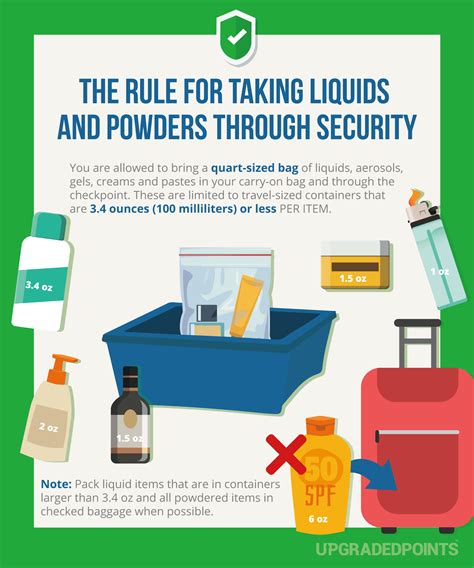
A traveler recounts falling victim to a common tourist scam in Greece involving inflated seafood prices at a restaurant, highlighting the importance of vigilance and preventative measures for visitors.
A recent travel experience in Greece has turned into a cautionary tale, as one tourist recounts falling prey to a classic scam involving exorbitant seafood prices at a restaurant. The traveler, who wishes to remain anonymous, shared their experience to warn others and highlight the importance of being vigilant while visiting popular tourist destinations. The incident serves as a stark reminder that even seasoned travelers can fall victim to carefully orchestrated scams, emphasizing the need for proactive measures to protect oneself from financial exploitation.
According to the firsthand account, the incident unfolded at a seemingly charming seaside restaurant. The traveler, enticed by the picturesque setting and promises of fresh seafood, ordered a meal without thoroughly confirming the pricing. Upon receiving the bill, they were shocked to discover that the cost of the seafood was significantly higher than anticipated, inflated to an unreasonable amount. The traveler realized that they had been targeted by a common scam that preys on unsuspecting tourists.
“I fell for a classic tourist scam in Greece—and I didn’t realize until it was too late,” the traveler admitted, emphasizing the feeling of helplessness and frustration that followed the discovery. The experience prompted the traveler to share their story in hopes of educating other potential visitors to Greece and providing them with the knowledge and tools necessary to avoid similar situations.
The scam typically involves restaurants luring tourists with attractive locations and enticing descriptions of fresh seafood. However, the menus may lack clear pricing, or the prices may be significantly higher than local standards. When tourists order seafood, the restaurants exploit the ambiguity and inflate the prices, knowing that tourists are less likely to dispute the bill due to language barriers, unfamiliarity with local customs, and fear of confrontation.
The traveler’s experience underscores the importance of proactive measures to prevent falling victim to tourist scams. These measures include thoroughly researching restaurants in advance, carefully reviewing menus and pricing, asking for clarification on any ambiguous charges, and being aware of common scam tactics. By taking these steps, tourists can significantly reduce their risk of being exploited and ensure a more enjoyable and secure travel experience.
Understanding the Anatomy of a Tourist Scam
Tourist scams, like the one experienced by the traveler in Greece, are not isolated incidents but rather a widespread phenomenon that affects countless visitors in popular destinations around the world. These scams often exploit the inherent vulnerabilities of tourists, such as their unfamiliarity with local customs, language barriers, and eagerness to experience the local culture. By understanding the anatomy of these scams, travelers can become more aware of the red flags and take proactive steps to protect themselves.
One of the key elements of a successful tourist scam is the creation of an environment that appears legitimate and trustworthy. Scammers often operate in well-trafficked areas, such as popular tourist attractions, restaurants, and hotels, where they can easily blend in with the crowd and target unsuspecting victims. They may also use persuasive tactics, such as offering unsolicited assistance, engaging in friendly conversation, or creating a sense of urgency, to gain the trust of their targets.
In the case of the seafood scam in Greece, the restaurant likely capitalized on the traveler’s desire to enjoy fresh seafood in a picturesque setting. The restaurant’s location, combined with the promise of fresh seafood, created an alluring environment that made the traveler more susceptible to the scam. The lack of clear pricing on the menu further contributed to the ambiguity and allowed the restaurant to inflate the prices without raising immediate suspicion.
Another common tactic used in tourist scams is to exploit the tourist’s lack of knowledge about local customs and pricing. Scammers may inflate prices for goods and services, claiming that they are standard rates or that there are additional fees that are not disclosed upfront. They may also take advantage of language barriers to confuse tourists and prevent them from understanding the true cost of their purchases.
The traveler in Greece mentioned the potential for language barriers and unfamiliarity with local customs as contributing factors to their vulnerability. The restaurant may have intentionally obscured the pricing or used confusing language to make it difficult for the traveler to understand the true cost of the seafood. By the time the traveler realized that they had been scammed, it was too late to dispute the bill effectively.
Proactive Measures to Avoid Tourist Scams
While it is impossible to eliminate the risk of encountering tourist scams entirely, there are several proactive measures that travelers can take to significantly reduce their vulnerability. These measures include thorough research, careful planning, and a healthy dose of skepticism.
-
Thorough Research: Before traveling to a new destination, it is essential to conduct thorough research on common tourist scams in the area. This research can help travelers identify potential red flags and develop strategies for avoiding them. Online travel forums, guidebooks, and travel blogs are valuable resources for gathering information about scams and learning from the experiences of other travelers.
In the case of Greece, a quick online search would reveal that seafood scams are a common issue in tourist areas. Travelers can also research specific restaurants in advance, reading reviews and checking for any reports of inflated prices or other questionable practices.
-
Careful Planning: Careful planning is another crucial step in avoiding tourist scams. This includes creating a detailed itinerary, booking accommodations and transportation in advance, and setting a budget for expenses. By having a clear plan, travelers are less likely to be caught off guard by unexpected offers or suggestions that could lead to scams.
For example, instead of wandering into a restaurant without prior research, travelers can make reservations at reputable establishments that have positive reviews and transparent pricing. They can also book transportation through trusted providers and avoid accepting unsolicited rides from strangers.
-
Menu Scrutiny: Always scrutinize the menu carefully before ordering. Look for clear and unambiguous pricing. If prices are not listed or seem unusually high, ask for clarification. Be particularly wary of restaurants that offer “fresh catch of the day” without specifying the price per weight, as this can be a common tactic for inflating the bill. “Always ask how much something costs before ordering it,” the traveler advises.
-
Price Confirmation: Confirm the price of all goods and services before making a purchase. This is especially important in situations where the price is not clearly displayed or where there is a possibility of hidden fees. Do not hesitate to ask for clarification or to negotiate the price if you feel it is too high.
In the seafood scam, the traveler could have avoided the situation by asking the restaurant to confirm the price of the seafood before placing the order. If the restaurant was unwilling to provide a clear answer, the traveler could have chosen to dine elsewhere.
-
Payment Vigilance: Be vigilant when paying for goods and services. Always check the bill carefully before paying and make sure that the charges are accurate. If you notice any discrepancies, dispute them immediately with the vendor. Pay with a credit card whenever possible, as this provides additional protection against fraudulent charges.
The traveler in Greece could have disputed the bill with the restaurant and refused to pay the inflated price. If the restaurant refused to negotiate, the traveler could have contacted the local authorities or their credit card company to report the scam.
-
Trust Your Instincts: Trust your instincts and be wary of anyone who approaches you offering unsolicited assistance or making promises that seem too good to be true. Scammers often rely on charm and persuasion to gain the trust of their victims. If something feels off, it is best to err on the side of caution and walk away.
If a stranger approaches you offering to guide you to a restaurant or help you find a taxi, be polite but firm in declining their assistance. Instead, rely on your own research and judgment to make informed decisions.
-
Documentation: Keep a record of all transactions, including receipts, contracts, and other relevant documents. This documentation can be helpful if you need to dispute a charge or report a scam to the authorities.
After dining at a restaurant, always keep the receipt and compare it to your credit card statement to ensure that the charges are accurate. If you notice any discrepancies, contact your credit card company immediately.
-
Stay Informed: Stay informed about current scam trends and tactics by reading travel advisories, news articles, and online forums. The more informed you are, the better equipped you will be to recognize and avoid scams.
Before traveling to Greece, check the State Department’s website for any travel advisories or warnings about scams in the area. You can also subscribe to travel newsletters and follow travel blogs to stay up-to-date on the latest scam trends.
-
Report Scams: If you do fall victim to a tourist scam, report it to the local authorities and the relevant consumer protection agencies. Reporting scams can help to prevent other travelers from becoming victims and can also assist law enforcement in cracking down on scam operations.
In Greece, you can report scams to the local police or to the Greek Tourist Police. You can also file a complaint with the Greek consumer protection agency.
The Psychological Factors at Play
Understanding the psychological factors that contribute to the success of tourist scams can provide valuable insights into why even seasoned travelers can fall victim to these schemes. Scammers often exploit common psychological biases and vulnerabilities, such as the desire to be polite, the fear of missing out, and the tendency to trust authority figures.
-
The Politeness Bias: Many tourists are naturally inclined to be polite and accommodating, especially when interacting with locals in a foreign country. Scammers often take advantage of this politeness bias by using charm and flattery to gain the trust of their victims. Tourists may be hesitant to question prices or decline offers for fear of appearing rude or offensive.
The traveler in Greece may have been hesitant to question the high prices at the restaurant because they did not want to appear impolite or confrontational. The restaurant may have also used persuasive tactics to make the traveler feel obligated to pay the bill.
-
The Fear of Missing Out (FOMO): The fear of missing out is another powerful psychological factor that scammers often exploit. Tourists may be tempted to accept offers that seem too good to be true, fearing that they will miss out on a unique opportunity or experience. This fear can cloud their judgment and make them more susceptible to scams.
A tourist might be offered a “special deal” on a tour or activity and feel pressured to accept it immediately, fearing that the offer will expire. This pressure can lead them to overlook red flags and make a decision that they later regret.
-
The Halo Effect: The halo effect is a cognitive bias that causes us to form an overall impression of a person or thing based on a single positive attribute. Scammers often exploit the halo effect by creating an appearance of legitimacy or authority, which can lead tourists to trust them more readily.
A scammer might wear a uniform or display a badge to create the impression that they are an official representative of a company or organization. This can make tourists more likely to trust them and accept their offers.
-
Cognitive Overload: Traveling can be cognitively demanding, especially in unfamiliar environments. Tourists may be bombarded with new information, sights, and sounds, which can lead to cognitive overload. This overload can impair their judgment and make them more susceptible to scams.
A tourist who is trying to navigate a crowded market, decipher a foreign language, and keep track of their belongings may be less likely to notice subtle cues that could indicate a scam.
-
Cultural Differences: Cultural differences can also play a role in tourist scams. What is considered acceptable behavior in one culture may be considered rude or suspicious in another. Scammers may exploit these cultural differences to confuse tourists and take advantage of their naiveté.
In some cultures, bargaining is a common practice, while in others it is considered impolite. A tourist who is unfamiliar with the local customs may be unsure of whether it is appropriate to negotiate the price of a good or service.
Long-Term Impacts of Tourist Scams
The impact of tourist scams extends beyond the immediate financial loss. Victims may experience feelings of anger, frustration, embarrassment, and a loss of trust in others. These negative emotions can taint their overall travel experience and even deter them from traveling in the future.
In addition to the emotional impact, tourist scams can also have economic consequences. Victims may be forced to cut their trips short, cancel future travel plans, or incur additional expenses to resolve the situation. The negative publicity generated by tourist scams can also damage the reputation of a destination and discourage other tourists from visiting.
Furthermore, tourist scams can contribute to a climate of distrust and animosity between tourists and locals. When tourists feel that they are being targeted and exploited, they may become more suspicious and less willing to engage with the local culture. This can undermine efforts to promote tourism and foster cross-cultural understanding.
FAQ: Avoiding Tourist Traps in Greece (and Elsewhere)
-
What are the most common tourist scams in Greece? Common scams include inflated prices at restaurants (especially for seafood), taxi fare overcharges, fake merchandise, and “helpful” strangers offering unsolicited assistance that leads to inflated services.
-
How can I avoid getting ripped off at a restaurant in Greece? Always check the menu carefully, paying attention to prices. Ask for clarification if anything is unclear. Be wary of “fresh catch of the day” without a price listed per weight. Confirm the total price before ordering, and review the bill carefully before paying. Check online reviews for any pricing issues.
-
What should I do if I think I’ve been scammed in Greece? If you suspect a scam, try to resolve the issue calmly with the vendor or service provider. If you can’t reach an agreement, report the incident to the local police or the Greek Tourist Police. Also, consider contacting your credit card company to dispute the charges. Document everything, including receipts, photos, and any communication with the vendor.
-
Are there specific areas in Greece where tourist scams are more prevalent? Scams are more common in highly touristy areas, such as popular islands like Mykonos and Santorini, as well as central Athens. Remain vigilant in crowded areas and be cautious of offers that seem too good to be true.
-
What general travel safety tips can help me avoid tourist scams anywhere in the world? Research common scams in your destination, be aware of your surroundings, don’t flash expensive items, keep your valuables secure, be wary of overly friendly strangers, trust your instincts, and always confirm prices before agreeing to any service or purchase.
![Bob’s Red Mill’s New [Product] Is a Family Favorite: Gone in Days!](https://infoduniaku.com/wp-content/uploads/2025/06/unnamed-file-279-150x150.jpg)








